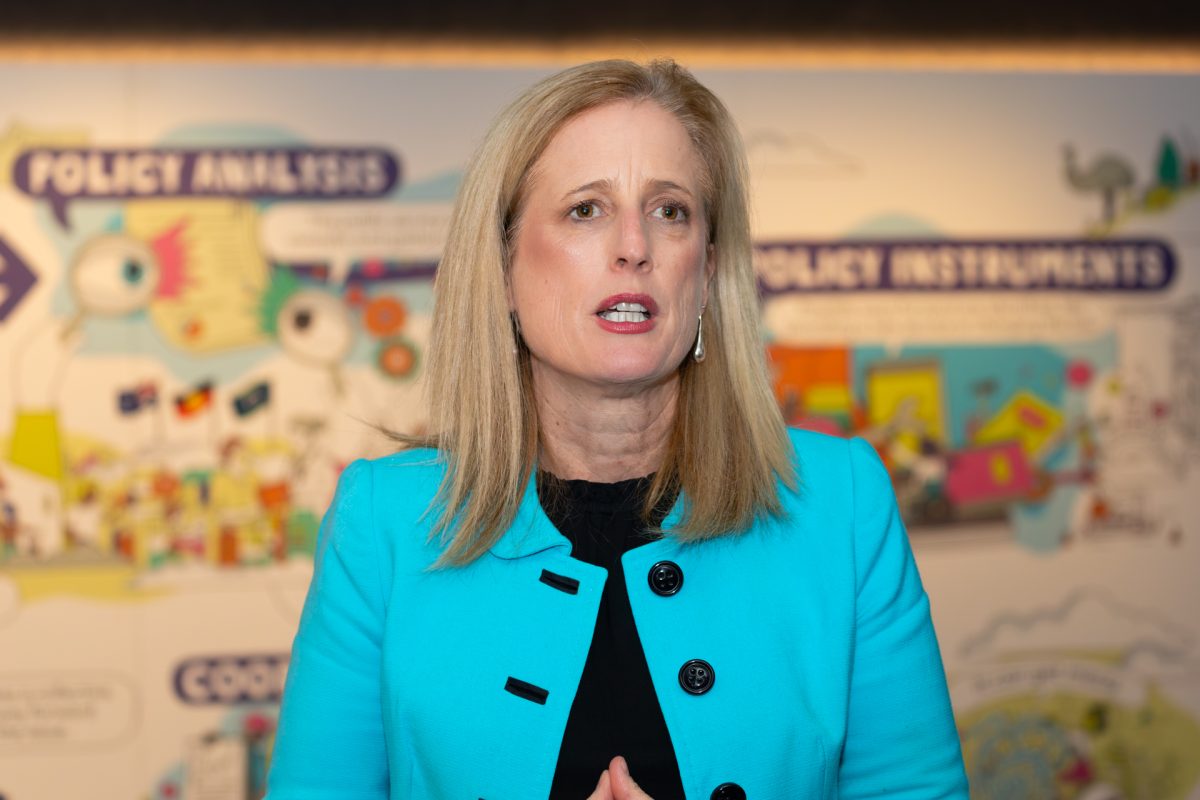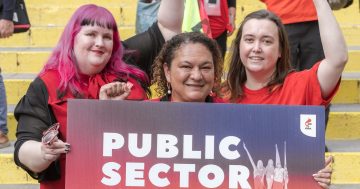
Public Service Minister Katy Gallagher has urged unions to accept the APS pay deal on offer. Photo: Michelle Kroll.
The Federal Government is feeling confident its latest pay offer to the public service will be accepted, despite the main union representing the workforce keeping a low profile since the offer was tabled.
The Australian Public Service Commission (APSC) slightly increased its offer on Tuesday (29 August) from a 10.5 per cent increase over three years to an 11.2 per cent hike over the same period.
The Community and Public Sector Union (CPSU), which has a claim on the table for a 20 per cent wages increase over three years, is publicly making no specific comment on the government’s revised offer until its membership has voted on it.
Instead, the union’s leadership will spend the next two weeks explaining to its members the details of the whole wages and conditions package being offered.
“After five months of intense negotiations, strong member campaigning, and clear direction from members on your priority issues, your CPSU bargaining team has worked hard at the bargaining table to negotiate on the issues that matter most to members,” a statement to members reads.
“We are now at the point that there is a package of pay and conditions for members to consider.
“The bargaining team have scheduled member-only webinars to take you through the detail of the package.
“Throughout this process, it has been members who determine our position on bargaining.
“So, these member-only webinars will be followed by a poll of all CPSU members in the APS to determine our position on the package.”
But wins in other areas, such as progress on pay parity between agencies, gender equity and parental leave, appear to have been achieved at the expense of a higher level of salary increases.
Ahead of the package being tabled, the CPSU stressed negotiations were about more than just pay rises, and its members wanted an outcome that would improve working conditions and make a dent in unsafe workloads caused by a high level of ongoing vacancies across the sector.
Region understands employee representatives in the negotiation process made a number of concessions in order to see serious action over pay disparity between agencies.
Making inroads on pay parity is a huge issue for the Australian Public Service, with mounting frustration over the considerable differences between agencies in wages for staff employed at the same level and classification.
Public servants working in central agencies are paid significantly more than those employed at the same level in some lower-profiled agencies, cultural institutions and agencies providing services to Aboriginal and Torres Strait Islander communities.
On offer now is a revised base salary structure that will go a long way to addressing pay fragmentation across the APS, lifting salary scales in 83 different agencies and benefitting almost 8000 employees by March 2026.
Finance and Public Service Minister Katy Gallagher has described the new offer as “reasonable and fair” and urged union members to accept it, suggesting the government was doing the right thing by its workforce.
“This improved offer remains the largest pay increase APS employees will have received in over a decade,” the minister said on Wednesday.
“This is what you get from a government that is willing to come to the table and bargain in good faith.
“We look forward to this being considered by the unions and reaching a final agreement.”
If accepted, APS-wide wage increases will begin with a 4 per cent rise next March, followed by 3.8 per cent in 2025 and another 3.4 per cent in 2026.
Other conditions on offer in the package include primary caregivers receiving 18 weeks’ parental leave, an increase for 94 agencies, and secondary caregivers receiving eight weeks’ parental leave rising to 18 weeks over the life of the enterprise agreement (an increase for all APS agencies).
Qualifying periods for paid parental leave will be removed.
Original Article published by Chris Johnson on Riotact.











